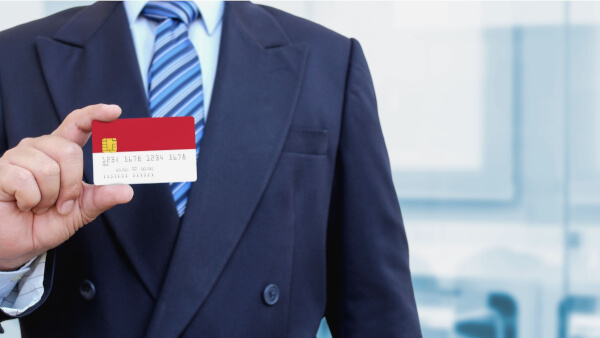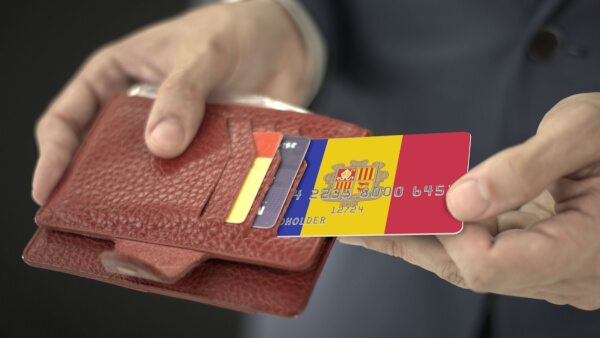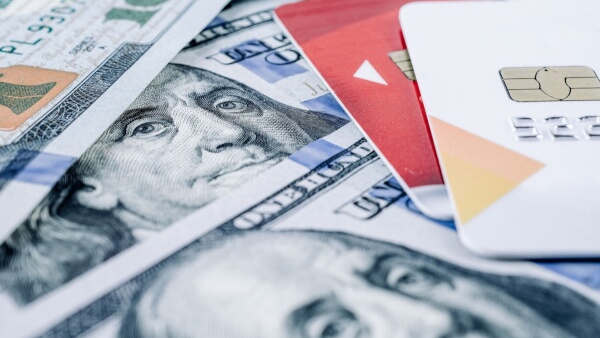How to open a UK bank account online in 2025
Check out our essential guide on how to open a bank account online, including bank types, required documents, fees, and more.

To apply for a new current account with Natwest online, you’ll be asked to provide proof of your identity and a debit or credit card that you're currently using. This can be done pretty simply - but only if you have the correct documents to hand, although Natwest also says that in some cases they’ll still ask you to come to a branch with your ID document and a proof of address. If you don’t have a UK driving license, passport or EU ID card - and a Visa or Mastercard in your name, you’ll still be able to start the application online and then you’ll have to visit a branch to prove your ID and address¹.
Natwest accept a range of documents as proof of address. However, for some customers this isn’t the most convenient option. For example, some of the documents commonly used include utility bills and bank statements. If you’re new to the UK or don’t have bills in your name for any other reason, these can be tricky to get hold of.
If you’re not sure what documents you can use to prove your address to Natwest, it’s good to know that there are other options out there as well. With a multicurrency account from Wise, you can apply for an account entirely free, online, and then choose how to verify your identity, including sending in a selfie with an ID document. More on that, later.
Here’s all you need to know about providing a proof of address for Natwest.
When you open a bank account in the UK, you’ll most likely be asked to provide a proof of address. This simply means that the bank needs to be able to check where you currently live, by seeing an official document like a utility bill, or correspondence from a government agency, linking you to a particular address.
UK banks ask for proof of address to comply with guidelines set by theFinancial Conduct Authority (FCA). You might also see them described as KYC - know your customer - checks. Individual banks interpret the FCA guidelines a little differently, so you might find that they accept different documents to each other. However, the proof of identity process is pretty uniform across most of the UK’s high street banks.
The guidelines are in place to stop money laundering and other illegal activities such as funding of terrorist groups. Financial institutions have a responsibility to carry out checks to ensure their customers aren’t using their banks accounts for anything illegal - and knowing the identity and home address of all account holders is a common step in this process.
To open a bank account with Natwest you'll need to provide a proof of address. The simplest way is to use the online DigiDocs service, which can check your proof of ID and address in minutes. To use this service you need to hold a UK driving license, passport, or EU ID card, as well as a Visa or Mastercard in your name².
If you don’t have these documents to hand, you can provide alternatives from a list set out by Natwest. However, it’s worth checking the detail of what’s acceptable, as there are some conditions. For example, you can only use an electronic bank statement or utility bill as proof of address if you’ve provided one of a specific set of documents as proof of ID. You’ll also likely need to go to a Natwest branch with these documents to have them checked rather than being able to do the entire process online.
For some customers, gathering the documents needed to prove your address can be tricky.
One option in this case, is to get yourself a multi-currency account with Wise. You can easily open an account online, and choose for yourself how you want Wise to verify your details.
All customers who want to open a multicurrency account need to provide a copy of a photo ID document, like a passport. Along with this, you can then either send a copy of a standard proof of address such as a driving license or credit card bill, or a selfie with your photo ID document instead.
Getting started with a Wise account is easy - verifying your ID should only take a day or two, and once your account is running, you can hold your money in any of over 40 different currencies. Whenever you need to, you can switch your balance between currencies using the real exchange rate with no markup. There’s just a small, upfront fee to pay.
For day to day banking, you can get yourself a linked debit card to use in ATMs, shops and restaurants, and make direct bank transfers in a wide range of currencies.
To prove your current residential address, you can provide Natwest with a document from the following lists. There are different requirements for regular accounts for adults, student accounts, and accounts being opened for those under 18, so make sure you’ve got the right list for your needs.
To open a standard account for an adult, you can provide one of the following as proof of address²:
If you’re opening a student account, you'll need to prove your address and also your student status. This can be done with your UCAS status code, or some official correspondence with your college or university, such as an enrolment letter or acceptance letter. Some Student Loan Company correspondence is also accepted as proof of student status².
For accounts being opened by an adult, on behalf of someone under the age of 18, you’ll need to provide proof of address for a parent or guardian, as well as proof of ID for the child. There are a few extra requirements here - for example, if the child does not have the same surname as the adult opening the account, so make sure you check these out before visiting your local branch².
In the vast majority of cases, you’ll need to find one of the documents set out above to prove your address to Natwest. There are only a couple of exceptions. For example, if you’re under the age of 18 and opening an account in your own name, you might be able to prove your address using a letter from your school, social worker or a registered charity². If this is your situation, it’s worth visiting a branch and talking through your options in person.
If you need a smart and flexible account, to make direct payments to other accounts, and spend day to day using a linked debit card, then a multi-currency account from Wise might be the right solution for you.
You can get your account up and running online, with flexible options for how to verify your account, making this a great option for customers who don’t yet have the usual proof of address paperwork required by traditional banks. This can be especially useful if you’re moving to the UK from overseas, as you might be able to use Wise to move your money from your home country to the UK as well. The fees are low, and always shown upfront, and you can be sure that your money will be converted with the real, mid-market exchange rate.
See if you can save time and money, with a flexible multi-currency account from Wise.
Sources used for this article:
1.https://personal.natwest.com/personal/current-accounts/what-do-you-need-to-open-a-current-account.html
2.https://personal.natwest.com/personal/current-accounts/what-do-you-need-to-open-a-current-account/proof-of-address-we-can-accept.html
*All sources checked on November 22, 2018
*Please see terms of use and product availability for your region or visit Wise fees and pricing for the most up to date pricing and fee information.
This publication is provided for general information purposes and does not constitute legal, tax or other professional advice from Wise Payments Limited or its subsidiaries and its affiliates, and it is not intended as a substitute for obtaining advice from a financial advisor or any other professional.
We make no representations, warranties or guarantees, whether expressed or implied, that the content in the publication is accurate, complete or up to date.

Check out our essential guide on how to open a bank account online, including bank types, required documents, fees, and more.

Check out our essential guide on how to open a bank account in Jersey as a British expat, including documents, fees, banks and much more.

Check out our essential guide on how to open a bank account in Monaco as a British expat, including documents, fees, banks and much more.

Check out our essential guide on how to open a bank account in Andorra as a British expat, including documents, fees, banks and much more.

Read our rundown of the best Nationwide USD account alternatives available in the UK, including HSBC, Lloyds, Wise, Barclays, Revolut and more.

Read our essential guide to the Revolut USD Account, including info on features, fees, rates, limits and how to apply.